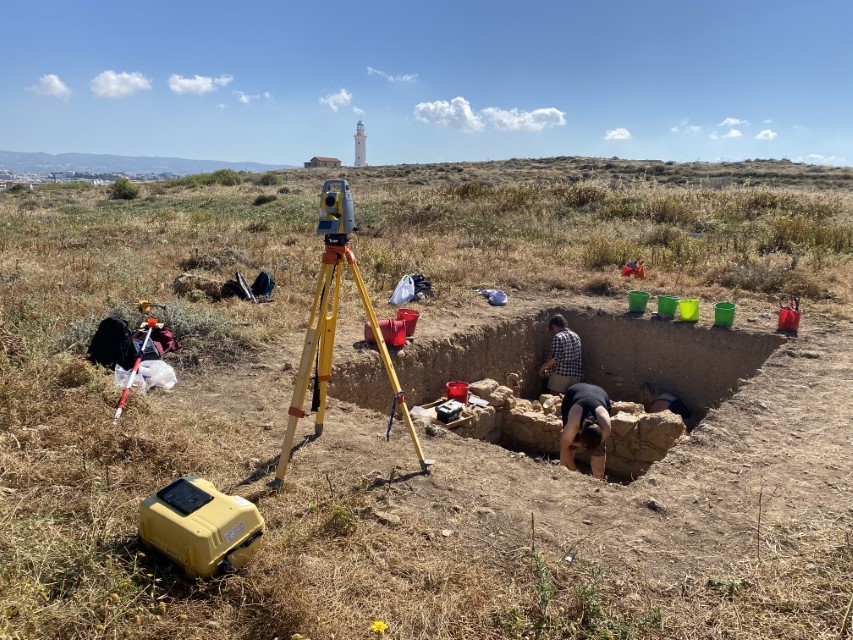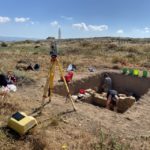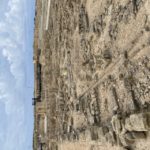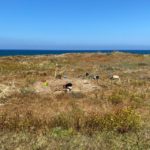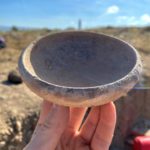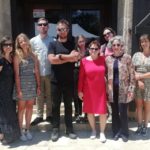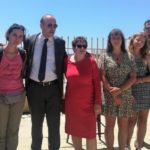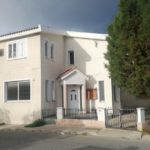The spring fieldwork season in Nea Paphos ended in mid-May. As of 2019, the expedition working there has been called “MA-P Malutena and Agora – Archaeological Project in Paphos, Cyprus. A joint expedition of Warsaw and Jagiellonian Universities.” Currently, in consortium with the Warsaw University of Technology, the expedition is carrying out a research project funded under the NCN OPUS 18 grant.
This season, a small team led by Prof. Ewdoksia Papuci-Władyka (JU and PCMA UW) was tasked with exploring two test trenches initiated in the preceding years. In the previous season, the research goals included searching for the remains of ancient streets and verifying the city plan. The establishment of the test trenches was preceded by non-invasive surveys using GPR and geomagnetic methods. Drainage facilities accompanying the streets and structures related to the city’s water supply were also analyzed. The spring team also included specialists who continued to study previously discovered archaeological materials. The next campaign of fieldwork will take place in late summer/early autumn this year.
At the invitation of the Department of Antiquities of Cyprus on May 2, the team also participated in the main event of the International Day of Museums and Sites 2023. The event was held at the UNESCO Archaeological Site of Kato Paphos, an archaeological park where the expedition is conducting excavations. The event focused on the inauguration of a project to modernize the site’s infrastructure launched by the Minister of Transportation, Communications and Public Works, with the participation of the head of a department belonging to the ministry and the Mayor of Paphos.
Prof. Ewdoksia Papuci-Władyka also heads the PCMA UW Research Centre in Cyprus, established at the end of 2021 (link). Last autumn, the purchase of buildings in Paphos, where the Centre will have its headquarters, was completed (link). On the occasion of the spring fieldwork season, preparations were made to get the buildings ready for the upcoming renovation and adaptation work.
Read more about the research in Nea Paphos (link)
-
Test trenches in Nea Paphos, 2023 //Badania w Nea Pafos 2023 (fot. MA-P project/ CAŚ UW)
-
Nea Paphos, 2023 // Nea Pafos 2023 (fot. MA-P project/ CAŚ UW)
-
Test trenches in Nea Paphos, 2023 //Badania w Nea Pafos 2023 (fot. MA-P project/ CAŚ UW)
-
Find from Nea Paphos, 2023 // Znalezisko z Nea Pafos, 2023 (fot. MA-P project/ CAŚ UW)
-
Zespół projektu MA-P z dr Mariną Solomidou-Ieronimidou, dyrektor Departamentu // The MAP project team with dr Marina Solomidou-Ieronimidou, the director of the Department (Fot. MA-P project/ CAŚ UW)
-
Zespół projektu MA-P z burmistrzem Pafos, Phedonem Phedonosem // The MAP project team with the Mayor of Paphos, Mr Phedon Phedonos (Fot. MA-P project/ CAŚ UW)
-
Paphos – the building of the PCMA UW Research Centre in Cyprus // Pafos – siedziba Stacji Badawczej na Cyprze CAŚ UW (fot. CAŚ UW)

